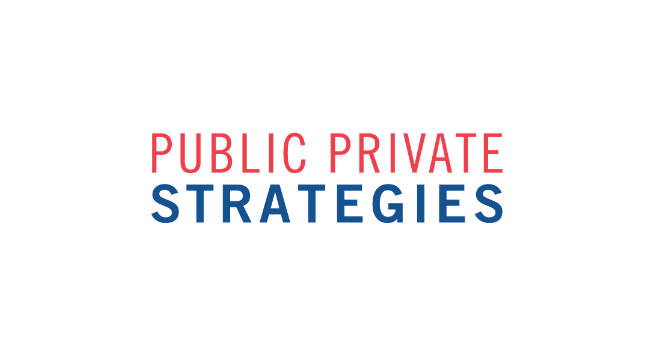


It seems the road to OZ may not be paved with good intentions. Media has begun sounding the alarm about the Investing in Opportunity Act, offering a bevy of examples of legislation designed to benefit low-income communities instead advancing gentrification, and privileging wealthy real estate investors.
The law didn’t get much attention when it was slipped into the 2017 Tax Cuts and Jobs Act, incentivizing private investment in qualified Opportunity Zones—designated areas in some of the nation’s most distressed communities—by offsetting capital gains. The IRS, which was handed the oversight reins by the U.S. Treasury, characterizes OZs as a tool “designed to spur economic development and job creation in distressed communities.”
But the act was raced into law before guardrails were in place to ensure that it works as intended. As a result, elite investors have discovered a tax shelter complete with rooftop pools and yoga lawns. Developers in downtown Portland, Oregon, are raising millions to build luxury condos anchored by a Ritz Carlton. SkyBridge Capital is breaking ground on a swanky hotel in New Orleans’ already hot Warehouse District. And OZ benefits are helping to raise a 46-floor tower in a Houston neighborhood that was already primed for gentrification. Besides its shiny exterior, building amenities include poolside cabanas and daybeds.
It’s too soon to call the legislation a failure. Financing naturally flows to projects with the lowest risks and highest returns. But absent legislation that seems a least an administration away, the pressure on philanthropy to ensure zones work as intended has just been raised a level.
As we’ve reported, some foundations—most notably Rockefeller and Kresge—are on the case, looking to realize the promise of a flawed law by providing technical assistance to cities with OZs in distressed areas, as well as backing oversight and reporting efforts. But much more needs to be done, and many additional foundations need to see that they have a stake in how the law is applied.
Public Private Strategies (PPS), a D.C.-based bipartisan group that creates opportunities between the public and private sectors, offers six concrete ways for philanthropy to step-up:
Shaping the rules of the game: PPS thinks philanthropy should put its collective weight behind influencing IRS guidelines and guiding legislation. It also recommends boosting resources for local leaders by producing data, metrics and case studies to attract investments. The Mastercard Center for Inclusive Growth has launched one such initiative, partnering with Accelerator for America to provide data that will help city leaders prove the investment value of their zones and make the best possible cases for achieving their community’s long-term needs.
Leveling the playing field: PPS considers philanthropy a natural partner for helping distressed communities attract investors and get “a seat at the table.” The Rockefeller Foundation has moved on that, with a five-city, $5.5 million Opportunity Zone Community Capacity Building initiative that embeds a local officer to guide investments, creating an easy environment for transaction negotiation. PPS Senior Advisor Tammy Halevy stressed the importance of supporting zones in rural and suburban locations, where on-the-ground resources are few and far between, prompting roll-ups and clusters. Halevy says the suburban sector needs especially careful thought due to complicated issues like gentrification and the consequences of urban flight.
Incentivizing investor behavior: Capital follows the path of least resistance, so philanthropy must help create a standardized impact reporting environment to effectively integrate social returns. That work is also underway. The Beeck Center for Social Impact + Innovation at Georgetown and the U.S. Impact Investing Alliance developed a reporting framework that established guiding principles, from community engagement and transparency to measurement. The trick now is getting investors to voluntarily adopt them.
Creating investable opportunities: Philanthropy can help communities create a pipeline of opportunities that meet both investor and community needs, develop model agreements for using zones as an investment tool—and make upfront investments to de-risk transactions. The Kresge Foundation’s been an early leader there. Before the IRS even issued guidelines, it began working on financial and social covenants that prevent displacement, prioritize the development of affordable housing units, set requirements creating living-wage jobs, and prohibit “non-productive” investments in things like self-storage facilities. Then it backed two funds to the tune of $22 million, de-risking the transaction in exchange for the manager’s voluntary adoption of the covenants.
Helping local residents build wealth: For zones to succeed, growth needs to stay local. New investments are bound to change the tenor of neighborhoods, and can lead to displacement and rising business challenges, especially for mom and pop businesses. PPS says philanthropy can influence project sponsors to commit to things like hiring locally, and seeding and sharing successful transactions.
Accelerating progress through knowledge sharing: To maximize resources, PPS recommends creating forums to share learnings across stakeholder groups for common challenges, and seeding “open source” solutions. Creating resource communications and sponsoring convenings are a natural fit for philanthropy, which intersects with society on a number of levels.
Opportunity Zones are here to stay—for now, anyway. The jury may still be out on how they’ll land, but one thing is clear: Unlocking trillions in capital for underserved communities will take the steady, concerted efforts of all sectors of philanthropy.
Originally published in Inside Philanthropyon September 5, 2019.



700 Pennsylvania Avenue Southeast, Washington, DC, 20003
Public Private Strategies | All Rights Reserved |
Created by Olive + Ash.
Managed by Olive Street Design.